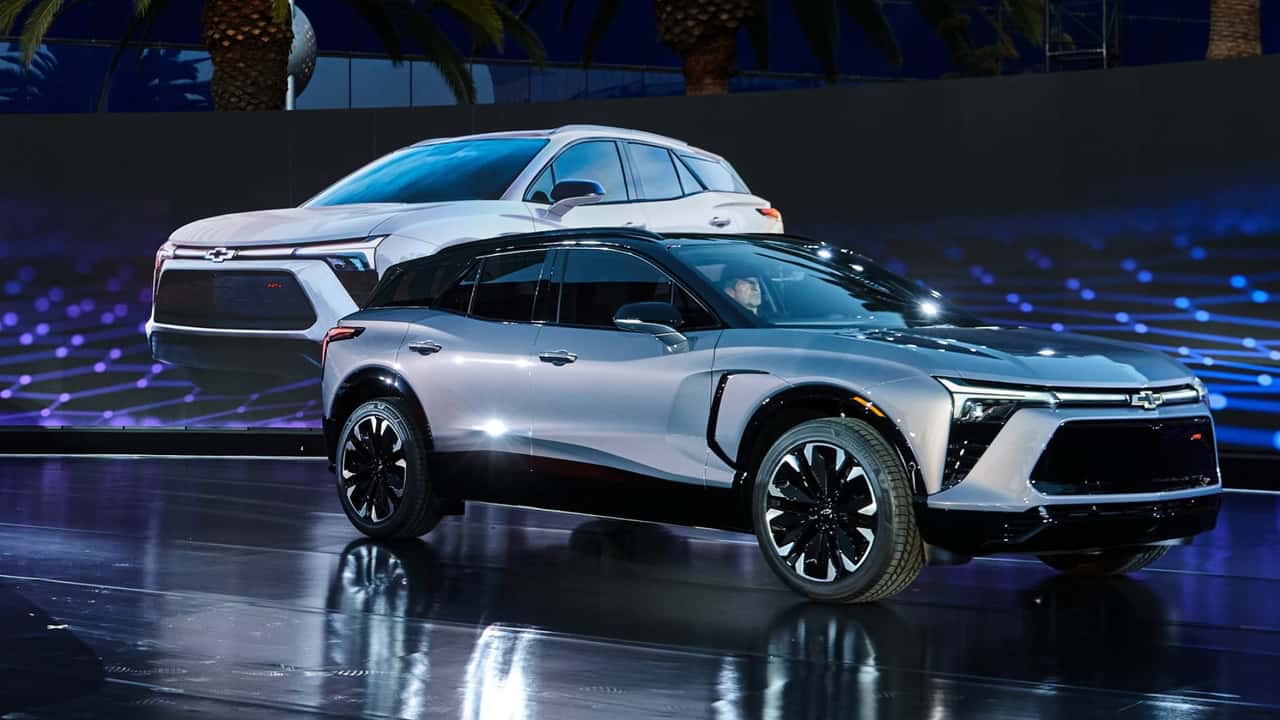The United Auto Workers’ (UAW) strike on General Motors, Ford, and Stellantis has entered its 21st day, and the issue of electric vehicles (EVs) has become a central point of contention. Most EV battery plants in the US are not unionized, and the potential decrease in parts, labor, and jobs in the production of EVs compared to conventional cars has raised concerns among workers. However, UAW President Shawn Fain announced a breakthrough with GM on Friday, stating that future battery manufacturing jobs will be unionized under the UAW’s Master Agreement. This major development has averted a strike at GM’s Arlington Assembly Plant in Texas, known for producing profitable vehicles like the Chevrolet Tahoe and Suburban. The UAW’s success with GM is expected to influence negotiations with Ford and Stellantis as well. The strike reflects the clash between the past and future of the auto industry, with workers feeling that their wages have not kept up with inflation while CEOs earn substantial compensation. The current UAW leadership has taken a more militant approach, with strikes escalating weekly. The automakers argue that the UAW’s pay raise demands could have a detrimental impact on their businesses, but the UAW is concerned about the future of union labor in an EV-focused market. Overall, this development marks a significant moment in the labor movement within the auto industry and demonstrates the impact of EVs on labor negotiations.
UAW Agreement Marks Significant Progress as GM Includes Battery Plants in Coverage
In a significant development for the electric vehicle industry, the United Auto Workers (UAW) and General Motors (GM) have reached an agreement that includes battery plants under the union’s coverage. This milestone is a testament to the growing importance of electric vehicles in the automotive sector and the need for skilled workers to meet the demands of this evolving technology.
The UAW-GM agreement signifies a crucial step forward in the ongoing efforts to transition the automotive industry towards sustainable and environmentally-friendly practices. With the inclusion of battery plants, the UAW now extends its reach into an essential component of electric vehicles, solidifying the union’s influence in shaping the future of the industry.
Battery technology is widely acknowledged as a key driving force behind the expansion of electric vehicles. It is a pivotal component that determines the range, performance, and overall viability of electric vehicles. The UAW’s recognition of the significance of battery plants in this industry shows a proactive and forward-thinking approach, ensuring that workers’ interests are safeguarded in the realm of clean energy vehicles.
By including battery plants in its coverage, the UAW is not only securing job opportunities for its members but also highlighting the importance of fair and equitable working conditions in this emerging sector. This move acknowledges the specialized skills required to manufacture and assemble electric vehicle batteries. The UAW will now play a crucial role in ensuring adequate training and support systems are in place for workers to excel in this field, fostering growth and innovation within the electric vehicle industry.
The agreement between the UAW and GM also opens new avenues for collaboration and dialogue. By joining forces, the union and the automaker can work together to address the challenges and opportunities presented by the increasing adoption of electric vehicles. This partnership paves the way for mutually beneficial discussions on matters such as workforce development, technological advancements, and industry standards. It signifies a recognition of the shared goal to create sustainable and prosperous futures for workers and the automotive sector as a whole.
Furthermore, as electric vehicle production continues to ramp up, the inclusion of battery plants in the UAW’s coverage emphasizes the commitment to domestic manufacturing and job creation. By establishing strong ties with automakers in the electric vehicle market, the UAW solidifies its position as a force for positive change and innovation in the labor market.
As the global automotive industry braces for a future dominated by electric vehicles, this agreement sets a positive precedent for other automakers and unions to follow suit. It demonstrates the need for proactive collaboration between industry players and labor organizations to ensure the equitable growth of this vital sector. By securing the rights and interests of workers in battery plants, the UAW and GM have set a benchmark for others to emulate, leading to a more sustainable and inclusive transition to electric vehicles.
In conclusion, the UAW-GM agreement represents a significant stride towards a cleaner and more sustainable automotive industry. The inclusion of battery plants in the union’s coverage recognizes the importance of this crucial component within the electric vehicle sector. It highlights the shared commitment of the UAW and GM to worker rights, domestic manufacturing, and the growth of the electric vehicle industry. This landmark agreement serves as a guiding light for other players in the automotive industry and sets a precedent for equitable and inclusive growth as we embark on a future powered by electric vehicles.

